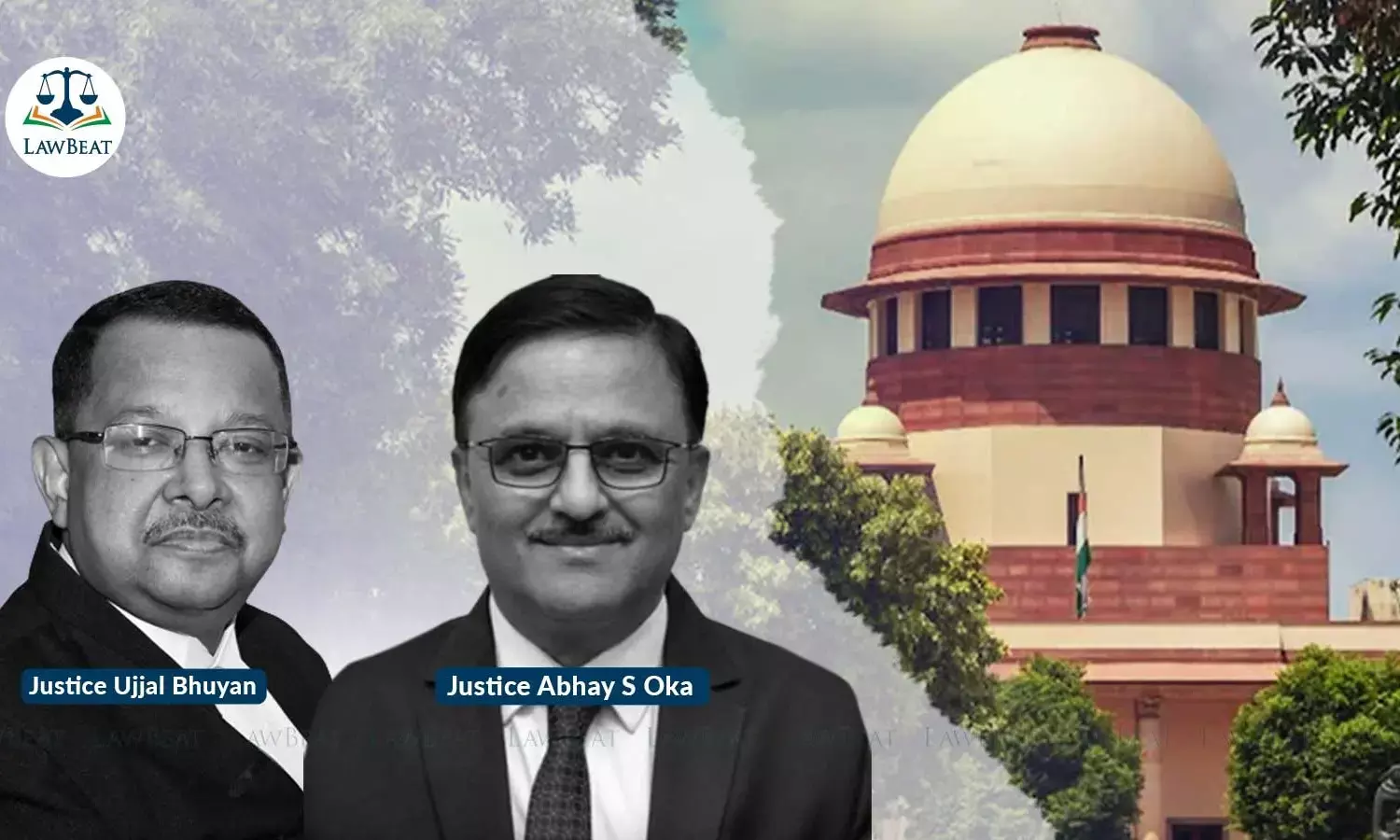SC Affirms Reproductive Autonomy: Maternity Leave Granted to Remarried Woman for First Child of New Union

In a decision advancing gender justice and constitutional protections for working women, the Supreme Court on Friday allowed the appeal of K. Umadevi, a Tamil Nadu government school teacher, and directed the state to grant her maternity leave for her first child from second marriage.
A Division Bench of Justice Abhay S. Oka and Justice Ujjal Bhuyan while allowing the appeal, observed,
“We accordingly set aside the judgment and order of the Division Bench of the High Court dated 14.09.2022 and declare that appellant shall be granted maternity leave under FR 101(a)... Maternity benefits which are admissible to the appellant shall be released to her within a period of two months from today.”
Case Background
Umadevi had two children from her first marriage, which ended in divorce in 2017. She remarried in 2018 and conceived her first child from the second union while serving as a government English teacher. Her request for maternity leave (August 2021 to May 2022) was denied under Fundamental Rule (FR) 101(a), which restricts such leave to government employees with “less than two surviving children.” The High Court’s Single Judge allowed her plea, but a Division Bench reversed it, interpreting her pregnancy as a "third child" case.
Supreme Court’s Ruling
The Supreme Court categorically rejected the Division Bench's reasoning, holding that,
“Though learned Single Judge had granted the relief to the appellant, we are also unable to persuade ourselves to the line of reasoning of the learned Single Judge - Post entry into service and from her subsisting marriage, this is her first child.”
The Court stressed the need for a purposive and rational interpretation of rules to accommodate reproductive rights, stating,
“The object of having two child norm... and the object of providing maternity benefit to women employees... are not mutually exclusive. The two must be harmonized in a purposive and rationale manner to achieve the social objective.”
On Reproductive and Maternity Rights
The Bench rooted its judgment in constitutional values, holding that maternity leave is a “facet of reproductive right of a woman which is traceable to Article 21 of the Constitution of India” and that,
“Right to life includes all the finer graces of human civilization... right to health... right to live with human dignity and the right to privacy.”
It referenced Suchita Srivastava v. Chandigarh Administration to affirm that:
“Reproductive rights include a woman’s entitlement to carry a pregnancy to its full term, to give birth and to subsequently raise children.”
The Court also highlighted international commitments under CEDAW, ICESCR, and the Maternity Protection Convention, observing that:
“Maternity leave is integral to maternity benefits. Reproductive rights are now recognized as part of several intersecting domains of international human rights law.”
Precedents Relied Upon
Central to the Court's reasoning was the case of Deepika Singh v. Central Administrative Tribunal, where maternity leave was granted to a woman for her first biological child, despite earlier caring for her husband’s children. The Court reiterated:
“The fact that the appellant’s spouse had two biological children from his first marriage would not impinge upon the entitlement of the appellant to avail maternity leave for her sole biological child.”
Further reinforcing this view, the Court drew from Devika Biswas v. Union of India and X v. Principal Secretary, Health and Family Welfare Dept., Govt. of NCT of Delhi, emphasizing that;
“Reproductive rights include the right to access education... contraception... to choose whether and when to have children... and access to reproductive healthcare. Women must also have the autonomy to make decisions... free from coercion or violence.”
In allowing Umadevi’s appeal, the Supreme Court reaffirmed that maternity leave is not merely a statutory benefit, but a constitutional guarantee arising from the dignity, autonomy, and health of women.
Case Title: K. Umadevi v. Government of Tamil Nadu & Ors.
